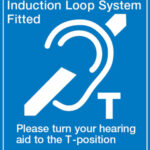When relationships end, there are often disagreements, emotions may be running high and the very idea of talking to your ex-partner face to face, can seem like an impossible task. Separating from a partner doesn’t need to end up with war and costly, time consuming court battles……. there are other options. Dispute Resolution!
At the centre of ‘Dispute Resolution’ is the concept that a negotiated or mediated agreement is far more likely to work and will undoubtedly ‘feel better’ for those involved, than an Order that has been imposed upon you by a Judge, who knows very little about your family, how it works and what is important for you.
You may have seen the BBC2 programme ‘Mr v Mrs: Call the Mediator’ which is a three part series shown on BBC2 at 9.30 pm on Tuesdays. If you haven’t seen it, click on this link to give you an insight in to a ‘fly on the wall’ documentary following nine couples , who are struggling to reach an agreement about the arrangements for their children or division of finances and have chosen the Mediation process in an attempt to avoid the trauma and expense of going to court.
I didn’t find the programme to be an easy or comfortable watch, the couples bicker, blame each other and some were greedy or bitter and others were influenced by a new partner or friend, telling them what to do. However, that can often be the nature of a breakup, for some at least. Regardless of how bad the break up feels, the programme illustrates that you can progress beyond that ill feeling and reach a solution without spending tens of thousands of pounds on court proceedings!
How can we sort our separation out?
Mediation
How does it work?
Sometimes you need help to get the talking started and focus on what really matters for you are and your family. Mediation is a way of helping you discuss and agree on the best arrangement for the future, whether that relates to your children, financial settlement, or the practicalities of how life will work in the future.
For many parents making decisions about your children would be easier if you could find a way to communicate, rather than going to court, where ultimately, if you can’t reach an agreement, one will be imposed upon you by a Judge, usually resulting in at least one, if not both parties being unhappy with the outcome.
Sitting together with a mediator can work well, as it enables parents to communicate and prioritise the children’s needs in a meaningful way, you may feel more able to express your concerns and fears than you would in a courtroom. If the Mediation process enables a family to move forwards in a more positive way and if you are parents too, the hope is that you are more likely to have a better co-parenting relationship which can only benefit children in the long run.
Benefits
Mediation works because:-
• It can provide a cost effective solution;
• It provides somewhere calm to talk privately with someone neutral;
• It helps you to reach informed decisions designed specifically for you and your family;
• It can help children avoid becoming the ‘casualties’ of a separation, by helping parents to work together to plan for their future.
Collaborative Law
The collaborative process works by you and your ex-partner sitting down with your collaborative lawyers, in the same room and working out all issues arising from the separation face to face. You both commit to reaching a solution without going to court and you get to set your own agenda about what is important and what you want to achieve.
Instead of dealing through your solicitors, you work together with them to find the best solutions for your family. If needed, you can also involve other professionals in this process, such as a financial adviser or family consultant, to help you create a team of support in the most cost-effective way.
What do you need?
• A commitment on both sides to reach a solution without going to court;
• A genuine desire to reach an agreement that is fair to the whole family;
• A willingness to be open and honest about all assets and to disclose the same
What are the benefits?
• You set the agenda, so you talk about the issues that are most important to you;
• You set the pace, as there are no court dates or deadlines and less pressure;
• You still benefit from having your own independent legal advice;
• You maintain contact with your ex-partner, if children are involved it will help your children to cope better with the separation If they see you working things out together
• Cheaper than court litigation
Family Arbitration
Sometimes, no matter how hard you try, or sometimes one or both parties have no real desire to reach an agreement, so you need someone else to make a final decision for you.
Court proceedings are, without question, costly. As a general rule of thumb, for every 1 day of a trial in court, you can budget for 1 or 2 days preparation, plus all the work involved for the months leading up to the trial stage. When the vast majority of solicitors charge on an hourly rate….. the costs mount up very quickly!
There are also the hidden costs of court litigation, which often get forgotten about. The time spent waiting around in court sometimes from 9 am to 5pm with only 3 or 4 hours of time before the judge, or the time wasted when a hearing gets adjourned because one party hasn’t filed documents, or the Judge is ill, or if your trial is split in to non-consecutive dates which can sometimes be weeks or even months apart. It can be frustrating and it is also important to remember, that in family court proceedings as a general rule, the courts do not like making costs orders and it’s not uncommon for 1 party to get away with not filing documents on time, not complying with orders and for them to get away with it without a penalty.
Arbitration is a form of Dispute Resolution where you agree with your x-partner to appoint a specially qualified professional as an arbitrator to adjudicate your separation, similar to the way a Judge would if there were court proceedings. The arbitrator makes a binding decision, known as an award.
Benefits
Arbitration:-
• Is confidential, and kept out of the ‘public eye’ unlike court proceedings;
• Is quicker than court, you set the timetable;
• Is available for married and unmarried couples, for financial disputes, inheritance claims; disputes about property ownership between unmarried couples.
• You can choose which arbitrator you want to use;
• You can choose how you want to run your arbitration;
• Is flexible and less formal than a courtroom
• Your arbitrator will be completely focused on your hearing and not half a dozen cases he or she has to deal with that same day.
• Is significantly cheaper than court proceedings.
• The arbitration award is binding on both parties and the award is final.
By Kate Robinson, on 29.06.16
For more information on any of the Dispute Resolution options or for a free initial consultation with myself or Dianne Burke, please contact us on 01937 547000. We will help you find the process that will best suit your family and circumstances.
Community News
Dementia Action Alliance (Leeds)
Proud members of the Dementia Action Alliance in Leeds









